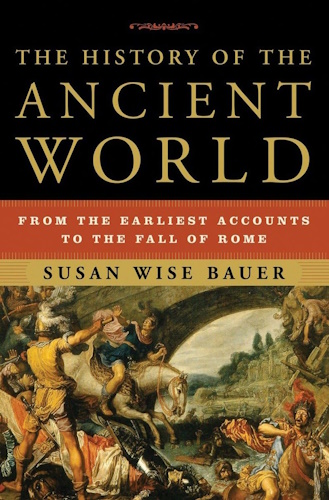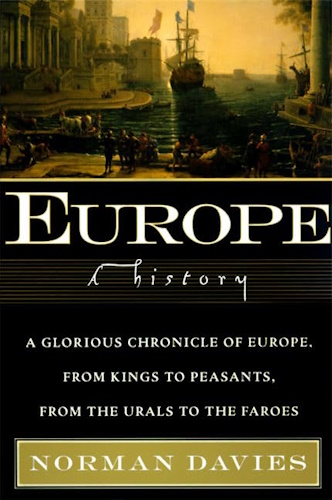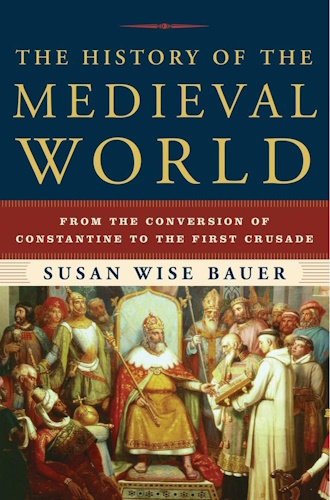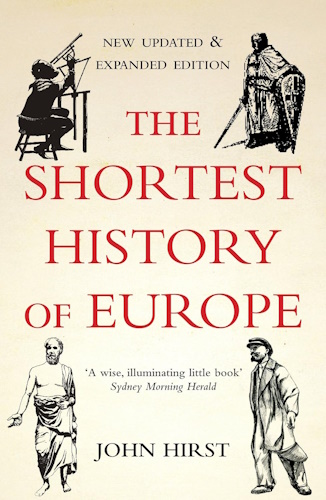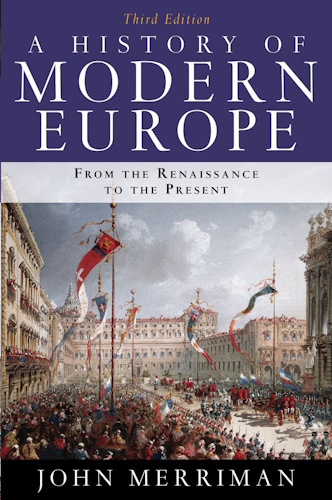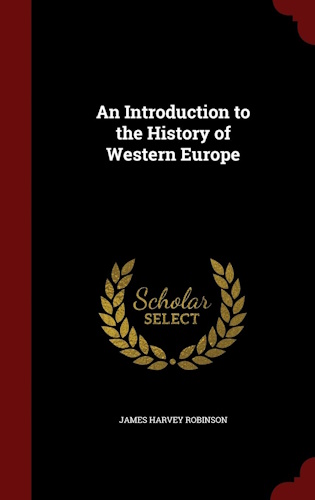![]()
In Defense
of
Kingship and Divine Right
by Tracy R. Twyman
from Dagobert's Revenge, Volume 5#1
![]()

"Ye seek a leader? I am your captain and your king.
Follow me!"
-King Richard I of England
In the late 17th century author Jacques-Benigne Bossuet proposed his theory of the Divine Right of Kings to settle a dispute between Pope Innocent XI and King Louis XIV of France over who had final authority in all matters French. Basically, he argued that kings were chosen by God and therefore should answer to no one except God. This theory dominated the period of Absolutism that Europe was going through around that time, in which kings exercised completely unchecked dictatorial powers, leading to the French Revolution and England's Glorious Revolution, in which severe constitutional limits were placed on the crown. While Absolutism is certainly a case of a concept being taken to extremes, the idea that kings get their authority from God is not a new one. In fact, it is the very basis of monarchy.
Human civilization began in Ancient Sumer, and that is where kingship began. Sumerian records claim that government on Earth was first installed by the gods, specifically a divine royal family headed by Anu, King of the Gods. His symbols were the tiara, the scepter, and the shepherd's staff, representing divinity, power, and righteous leadership, respectively. The Sumerians said that the gods created us, taught us all the basics of civilization, and shortly after the Deluge, they decided it was time for us to govern ourselves. They directed mankind in building the first city, Kish, and they crowned the first human king as an intermediary between mankind and his creators. "Kingship descended from heaven", the texts read. The legitimacy of the king's authority was derived directly from Anu. In fact, their word for kingship was Anutu (literally, Anu-ship). From that point on, kingdoms have come and gone, but the concept of king as deific appointee has made its way into all cultures.
In our Judeo-Christian culture, the idea of divinely-ordained monarchy is backed up by scripture. After an unsuccessful attempt to rule His chosen people directly through a council of judges, Yahweh finally gave in to popular demand and appointed King Saul. Of course, Saul had a problem with obedience, and soon God had to choose another, young David, a descendent of the patriarch Judah. Having promised Judah 10 generations previous that he would father a great nation and that "the scepter shall not depart from Judah…until Shiloh come" (Genesis 49:10), it seemed like a natural choice. Through his prophet Nathan he told David "I will set up thy seed after thee, which shall proceed out of thy bowels, and I will establish his kingdom. He shall build an house for my name, and I will establish the throne of his kingdom forever." (Samuel 7:12). So in 1048 BC, David was crowned king of both Judah and Israel, with Jerusalem as his capitol, which until then had been a Canaanite village known as Jebus. The two nations split a couple of generations later, with Israel maintaining a separate succession and Samaria as the capitol, but the kingdom of Judah remained loyal until its inhabitants were carried off into Babylonian captivity, where Zedekiah, the last historically acknowledged King of Judah was blinded just prior to the murder of his sons. However, the royal bloodline was kept intact and a line of Judaic kings de jure proliferated, culminating 21 generations later in Jesus the Nazarene. Thus the title: King of the Jews" which was placed above his head at the crucifixion was actually an accurate description. In fact, there are some who say that Jesus and/or his brother James spawned heirs to the throne of Jerusalem, who fled to France and Ireland after his death and continued the Davidic dynasty, intermarrying with local royalty. This claim was made by a number of powerful European dynasties, including the Merovingians, the Carolingians, the Stuarts, the Plantagenets, the Habsburgs, and even Emperor Constantine, who have all traced their ancestry back to the House of David. It was this claim upon which they based the legitimacy of their rule, and usurpers who were not already of the Blood of Sion, as it's called made a point of marrying into the usurped family before their coronation and anointment ceremony in order to make it legitimate. Indeed, it is generally acknowledged by scholars that the ritual of anointing kings, first employed by the Vatican when helping Pepin III depose Childeric II as King of the Franks, was, in the words of author Michael Baigent: "a deliberate attempt to suggest that the Frankish monarchy was a replica, if not actually a continuation, of the Judaic monarchy of the Old Testament." This was significant, for the Church was now assuming the god-like power of creating kings, whereas up until that point kings had been born, not made, and were regarded as such upon coming of age.
Since the death of Absolutism, monarchy all over the world has given way to all sorts of supposedly "populist" governments: Democracy, Republicanism, Communism, Fascism, Socialism, and all points in-between, all under the banners of "Freedom", "Liberty", "Equality", and the like. Here in the west, the few countries that still maintain a monarchy do it purely for show. Their sovereigns have been almost completely stripped of their authority and function merely as tourist attractions and topics of conversation, while parliaments and congresses of elected officials who supposedly represent the people have taken over the role of leadership. But do they really represent us? Rarely. If anyone, they represent the campaign contributors who actually put them there. Once in office, they are under no obligation to keep the promises they made to the public, and they only respond to public sentiment when they are about to be voted out of office. They have no sense of responsibility to the people they govern, and no loyalty to their oaths of office. Here in America, the Constitution is regularly pissed upon by those who find the First Amendment inconvenient and the Second Amendment dangerous. Unlawful searches and seizures occur daily in the midst of this ridiculous Drug War, and people under the age of 18 are considered less than human, without freedom of speech or movement. And the voters, an ignorant, apathetic bunch, gladly allow their rights to be trampled on in the belief that the Crime Bill will stop crime or that the Tobacco Bill will prevent lung cancer. They actually believe that Big Daddy Government is going to take care of them, often arguing that we should be more like "the rest of the civilized world", meaning Europe, where guns are illegal, taxes of all kinds are exorbitant and personal freedoms are more like privileges. They are willing to look the other way as elected officials commit heinous crimes and sell our futures off to foreign interests simply because of a seemingly healthy economy, when in fact international banking families and the non-elected Directors of the Federal Reserve Board have more influence over the economy than any politician. In effect, what we have in America is neither a Republic nor a Democracy, but an oligarchy operating under the guise of mob rule.
In such a system, who will stand up for the rights of the individual citizen while Republicans and Democrats quibble about which Constitutional infringement to pass next? Who will provide consistent leadership and uphold the principles of our founding fathers despite the ever-changing agendas of passing administrations? Who will be immune to the influence of vested interests and party politics? Who will be a unifying symbol to re-instill pride and patriotism in the jaded masses, whose blasé attitude has allowed this decay of American freedom?
The answer is simple. Within the confines of a well-established, well-respected, God-ordained royal family, a monarch can be born and bred expressly for the purpose of operating as a constitutional protector, and can exercise his or her authority without having to pander to corporations, politicians or angry voters who want their immediate needs met with no thought of the consequences. He would indeed answer to no one but God, duty-bound to watch over the nation as a shepherd keeps his flock. (And if he were descended from the Royal House of David, he could gain the respect of Muslims, Jews and Christians alike, both here and abroad.) The founding fathers knew this. In fact they initially wanted to crown George Washington "King of the Americans", and then later offered the post to the exiled Charles Stuart III of Scotland, who declined only for lack of a male heir. They knew that without a strong head the body politic would be unable to function properly. The dogged defensiveness of some of Clinton's supporters for "the honor and dignity of the office of Presidency", their ardent loyalty to him despite everything he's done just because he's "the President" - is proof of this. It shows that many people still have an unconscious desire for a king, a father figure whose rule is absolute and whose leadership is unquestioned. The strong emotional reactions that many have had to his betrayal reveal that as well, a desire to have someone you can actually look up to as opposed to someone just doing a job for self-serving reasons. They too see the office of Presidency with the awe and reverence usually reserved for a monarch, and they don't like to see that image disgraced. This demonstrates that the "democracy" which we currently enjoy - meaning the popular election of partisan puppets who waste the country's time and money for 4-8 years, then get discarded like an old toothbrush - is not sufficiently meeting our need for leadership. We need someone who will defend our constitutional guarantees and who will defend our national sovereignty from foreign invasion, both military and monetary, someone who's authority to watch over the affairs of this nation is respected by all, because he does so by divine right.
This article was originally written for Dagobert's Revenge Magazine. You can purchase a copy of the final issue of the magazine, Dagobert's Revenge Magazine, Volume 5, Number 1, edited by Tracy R. Twyman.
You can purchase a copy of the book The Arcadian Mystique: The Best of Dagobert's Revenge Magazine, Edited by Tracy R. Twyman (Foreword by Richard Metzger, which contains expanded and updated versions of dozens of Dagobert's Revenge articles.

Tracy R. Twyman is an American non-fiction author, born on August 28, 1978 in Kansas City, Missouri. She writes about esoteric history. Her most well-known books include Clock Shavings, The Merovingian Mythos and the Mystery of Rennes-le-Chateau
, released in October 2004 on Dragon Key Press, Solomon's Treasure: The Magic And Mystery of America's Money
, and Money Grows on the Tree of Knowledge
. Her latest is Baphomet: The Temple Mystery Unveiled
, co-written with Alexander Rivera of The AeonEye.com. Before writing books, she made a name for herself as the Editor and Publisher of a highly unique magazine entitled Dagobert's Revenge - a journal dedicated to the Merovingians, the Grail and Rennes-le-Chateau - which was published from 1996 to 2003.
She has appeared on several radio shows, television shows, and film documentaries. Most notably, she has been interviewed on National Geographic's "Is It Real: Da Vinci's Code" (2006), "Jesse Ventura's Conspiracy Theory" (2012), and the documentary film Bloodline (2008). She has appeared repeatedly on Coast to Coast AM, and Ground Zero with Clyde Lewis (which she was the Executive Producer of for a period of time from 2014-2015), as well as many other programs.
She has been a journalist for ten years, and is a noted expert on the occult and studied the Holy Grail mystery for seven years. She also wrote the introductions for Nicholas de Vere's The Dragon Legacy and William H. Kennedy's Lucifer's Lodge. She is the Lady Grand Master of the Royal and Imperial Dragon Court, and the Exalted Grand Master of the Ordo Lapsit Exillis. She currently edits the websites dagobertsrevenge.com, nicholasdevere.com, and ordolapsitexillis.org.
![]()
![]()
Disclaimer:
Some material presented will contain links, quotes, ideologies, etc., the contents of which should be understood to first, in their whole, reflect the views or opinions of their editors, and second, are used in my personal research as "fair use" sources only, and not espousement one way or the other. Researching for 'truth' leads one all over the place...a piece here, a piece there. As a researcher, I hunt, gather and disassemble resources, trying to put all the pieces into a coherent and logical whole. I encourage you to do the same. And please remember, these pages are only my effort to collect all the pieces I can find and see if they properly fit into the 'reality aggregate'.
Personal Position:
I've come to realize that 'truth' boils down to what we 'believe' the facts we've gathered point to. We only 'know' what we've 'experienced' firsthand. Everything else - what we read, what we watch, what we hear - is what someone else's gathered facts point to and 'they' 'believe' is 'truth', so that 'truth' seems to change in direct proportion to newly gathered facts divided by applied plausibility. Though I believe there is 'truth', until someone representing the celestial realm visibly appears and presents the heavenly records of Facts And Lies In The Order They Happened, I can't know for sure exactly what "the whole truth' on any given subject is, and what applies to me applies to everyone. Until then I'll continue to ask, "what does The Urantia Book say on the subject?"
~Gail Bird Allen
![]()
![]()

